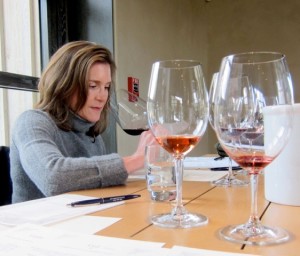What’s a Boutique Winery?
As a Wine Country concierge, it’s my job to match clients with the best wineries for their palate and their purse. It’s no easy task. There are literally hundreds of wineries — 390 in Napa and 450 in Sonoma — with new brands popping up all the time. Way more than you could visit in a year’s worth of weekends. While I am actively trying to see them all, I don’t foresee the day when I will have every last one crossed off my list.
There are wineries of every shapes, size and style. At one end of the spectrum, there are big brands with huge production and international distribution. At the other, tiny labels that make maybe 20 or 30 barrels in a good year. It’s fair to call one of these a boutique winery. And as you might expect, clients are drawn to them for their quiet charm and secluded nature.
But what exactly does it mean to be a boutique winery? Here is my criteria:
- Production is under 10,000 cases a year. In fact, many of the boutiques I know run at just 1,000 cases or so.
- Getting your hands on this wine may be no easy feat as much of it is sold direct to consumer, meaning you won’t find it in wine shops or at many restaurants.
- The production facilities — if not the vineyards themselves — are off site.
- The “tasting room” (such as it is) is located at the owner’s house. That or the owner lives on property.
- Tastings are lead by winery principals. That is, the owner, the winemaker, or an estate director who handles hospitality and a hundred other things.
- They aren’t open to the public. Only club members have access.
- Those that are open to the public don’t keep regular hours so you can’t just show up. You can’t even use an online booking engine to make a reservation. They’re too idiosyncratic for that.
- Tasting appointments are small and private. You and your companions are hosted individually. You’re never a part of a group because groups larger than eight are almost never allowed in.
- They may share production and/or visitor facilities with other boutique brands. Sharing space and equipment is often the only way they have to offset the cost of running a “hobby” winery. Unless, of course, the owner is fabulously wealthy. That’s not unheard of in these parts.
- While these wineries may BE a boutiques, they most definitely do not HAVE boutiques. You would be hard pressed to find any of the branded caps and tees, glasses and gifts that line the shelves at the big brands along Highway 29. That stuff is far too gauche for these small labels.
In short, if you’re not a member of their wine club or on their mailing list, you’re probably not getting in. That’s where a concierge can make a difference. I have those relationships. And the way I maintain them is to make sure I serve the interests of both parties. When I screen a winery to suit the needs of my clients, I am also screening clients to match the needs of a boutique winery. So let’s discuss what’s right for you and I’ll make it happen for your next visit to Wine Country!


